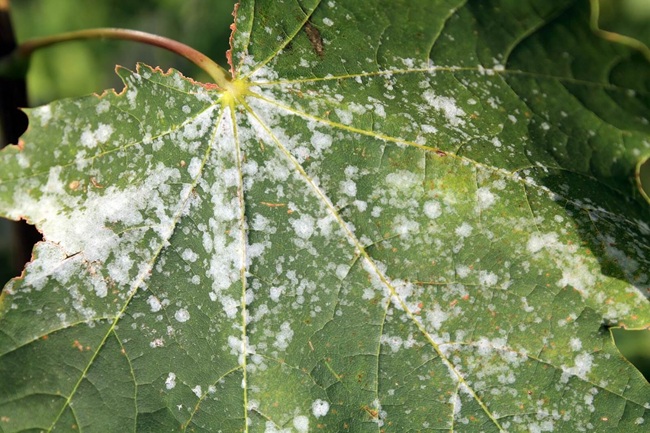Summer will soon be upon us, and many gardeners have already gotten a jump on the growing season and started their seeds. As the weather gets warmer, the chance of contracting disease also increases for plants. Once you notice black spots, white spots, or signs of rot in your plants, you’ll need to act fast. Expert gardeners don’t spend all their time playing combat medic and patching up plants that have already succumbed to disease. As Benjamin Franklin once said, “An ounce of prevention is worth a pound of cure.” Let’s dive into both how to treat plants that have succumbed to disease and how to prevent black spot, blight, mildew, and more from affecting your garden.
Biorational solutions are safe, eco-friendly means to protect your plants from diseases. They don’t include harsh chemicals, striking a perfect balance between stopping diseases while being gentle to beneficial pollinators, soil microbes, and the plants you wish to protect. As stated previously, you want to introduce biorational solutions to your garden before diseases appear; however, if you’re reading this article in a panic while mildew spreads through your tomato crop, don’t worry. Just start treatment as soon as possible. We’ll cover preventative measures for three diseases: black spot, blight, and powdery mildew.
Black Spot
Black Spot is a type of disease that’s famous for maligning roses, but it can infect a wide variety of garden plants. You’ll find that black spot is most potent during the long, hot, and humid days of summer. Special care should be taken if you have an extended period (several hours) of rain followed by humid, muggy weather. These are the ideal conditions for black spot. As the name implies, black spot manifests as circular black or dark brown spots (¼ inch or larger) with ragged or fringed edges. The disease will first appear on older growth near the roots of the plants then will spread upward. The leaves displaying spots will yellow before falling from the plant.
To treat a plant infected with black spot, you’ll need to prune the infected leaves and dispose of them. If you compost (and this goes for all diseases, not just black spot), never put infected material into your compost pile. Instead, burn the infected material. If that’s not feasible, stuff the infected leaves into your trash and let your local garbage service take them away.
To prevent black spot from infecting your garden, examine how you are watering your plants. Try to only water at the root and not directly onto the leaves and flowers. You can also use a spray like Arber® Bio Protectant to increase a plant’s resistance to fungal infection through a unique blend of giant knotwood extract that boosts protein production and disease resilience.
Blight
Blight is an umbrella of diseases characterized by a quick spread time and a similar progression. Blight can affect any type of plant, be it indoor or outdoor, and can be caused by bacteria or fungi. Because of this, the first step to treating blight is to identify which type has invaded your garden.
Still, there are some general tips on how to prevent blight from devastating your plants. First, if you’re planting annuals, rotate the annuals around your garden each year – don’t plant the same species in the same spot year after year. Make sure your garden is weed free and keep an eye out for tears and abrasions in your plants – bacterial blights will enter the plant in these incisions. Of course, we’d be remiss if we didn’t sneak in a reminder not to overwater your plants!
Powdery Mildew

Powdery Mildew is a frustratingly common disease that infuriates hobbyists and professionals alike. Like many common names for diseases, powdery mildew is a bit of an umbrella term for a variety of similar fungal infections. This disease targets a wide variety of common garden vegetables, such as tomatoes, zucchini, eggplant, and squash. However, powdery mildew is typically not fatal to the plant and can be easily treated once identified.
If you see white or gray spots on your plant leaves, that’s a sure sign of powdery mildew. BONIDE® Sulfur Plant Fungicide controls mildew by preventing germination, so it’s more preventive than punitive, but it’s still a good option to stop the spread of mildew while you work to eradicate it. Organic JMS Stylet Oil is an organic fungicide that kills powdery mildew on contact and prevents further propagation for 10 days after application. In terms of good habits, make sure that you’re removing dead plant matter from your growing area, especially if you’re in a shaded area with little air flow.
ARBICO Organics was founded in 1979 in Arizona. Over 40 years later, ARBICO Organics continues to produce innovative means of natural biological pest control and disease management for hobbyists and professionals alike.


Comment here